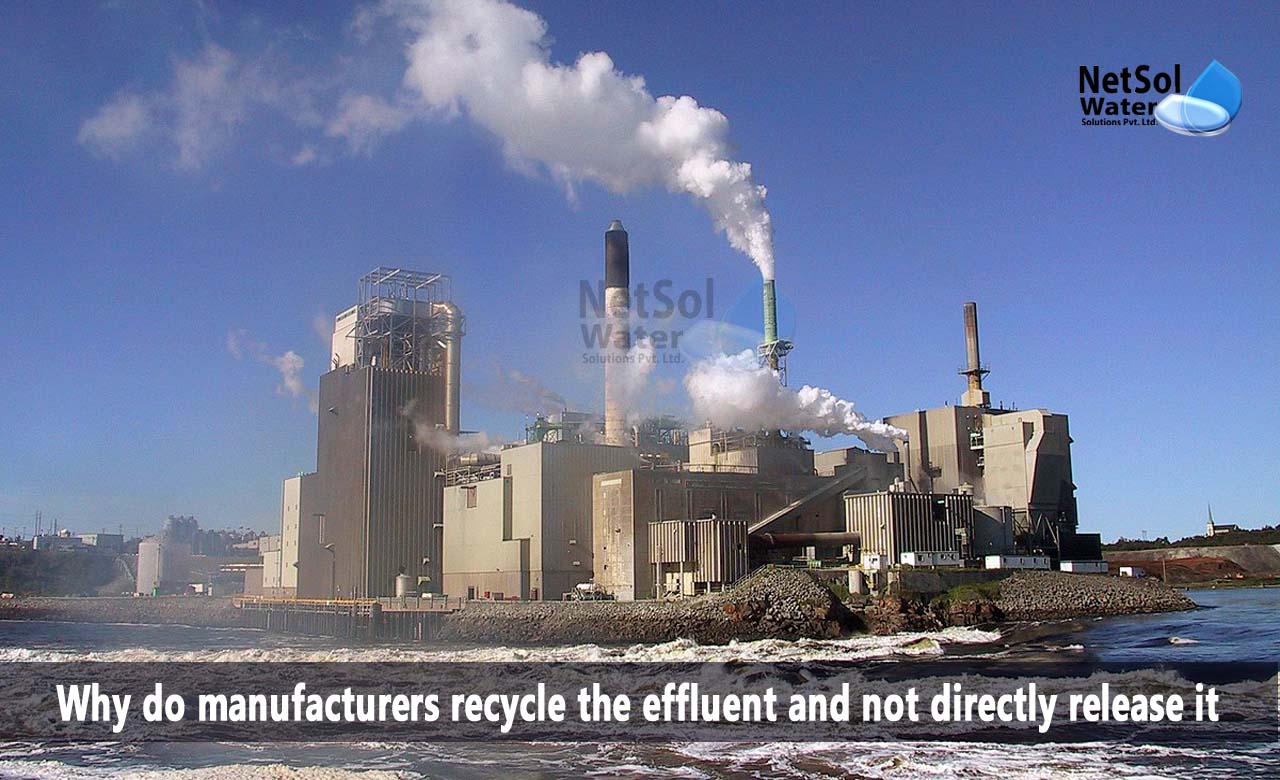Increasing water-access costs and ever-tighter effluent rules might all seem to create a losing battle, for industrial enterprises that are trying to stay ahead of the water-shortage curve as populations expand and continue to burden waterways, alongside the consequences of climate change.
However, if your facility takes a few precautions now to recycle wastewater, and lessen these upcoming costs, there's a good chance that your company will be better prepared to adapt to a world, where there is a scarcity of water.
Why do manufacturers recycle the effluent and not directly release it?
Reusing and recycling water in your process can significantly minimize the amount of effluent, your firm must discharge. Although, the initial expense of this strategy may be substantial, the long-term benefits are frequently worth it. This is especially true given the increasing pressure on facilities, to reduce their water consumption, which manifests itself in exorbitant fines and onerous rules.
Because of this, many facilities are setting objectives to ensure that they are not using more water, than they can cleanly replenish. Finding the recycling strategies that will work best for you, can be determined with careful analysis.
Recycling reduces energy use
Energy conservation is an additional advantage. Almost all recycling procedures save appreciable amounts of energy, as compared to processes that utilize raw materials, although the amount of energy saved by recycling varies depending on what is being recycled.
Recycling benefits the economy
Numerous of our energy sources are running out, and energy is expensive. Energy conservation in manufacturing procedures can greatly reduce the cost of production.
In addition, recycling industrial effluent is a varied sector that requires a lot more labour than waste disposal. This implies that expanding the recycling sector is a technique of boosting employment.
When possible, switch to waterless procedures
Numerous technological developments are substituting water-intensive processes, with ones that use little or no water at all. Consider implementing some of these ideas at your own facility.
Your facility may benefit from zero liquid discharge, a collection of technologies that work to recover all fluid waste, leaving the facility with a solid cake of waste that is simpler to discard, when it comes to treating your process water and wastewater for particular situations, where you can't discharge water at all.
Technology for biological wastewater treatment should be used
Biological wastewater treatment can be a good option for your facility if your industrial or municipal facility, produces wastes that is heavily contaminated with organic material.
For degrading and eliminating organic pollutants from wastes produced in the food and beverage, chemical production, oil and gas, and municipal industries, these systems may be effective and cost-effective solutions.
An added benefit for facilities that may use this technique is that it is a natural process, which yields valuable biogas that can be used as energy for other processes within the facility.
Conclusion
The treatment of wastewater generated from one source so that it can be utilized again in that process, or recycled for another is known as industrial water reuse and recycling. Various techniques for recycling or reusing industrial water are available, based on the needed water quality, available area, and available budget.
Benefits can include a decrease in your water footprint, wastewater flows, and freshwater prices. Because, there is more clean water available, operational efficiency and sustainability can be improved along with production capacity.
What do we offer?
To determine the best treatment and reuse option, it is important to carefully consider the various wastewater sources used by each sector. Netsol Water can assist with issues like a rise in process demand, adherence to stricter rules, the cost of water and effluent, or corporate sustainability objectives.
Engineers, consultants, and plant managers can benefit from our wide selection of equipment solutions, and in-depth application knowledge to acquire and deliver a comprehensive solution with the least amount of disruption to on-going operations.



